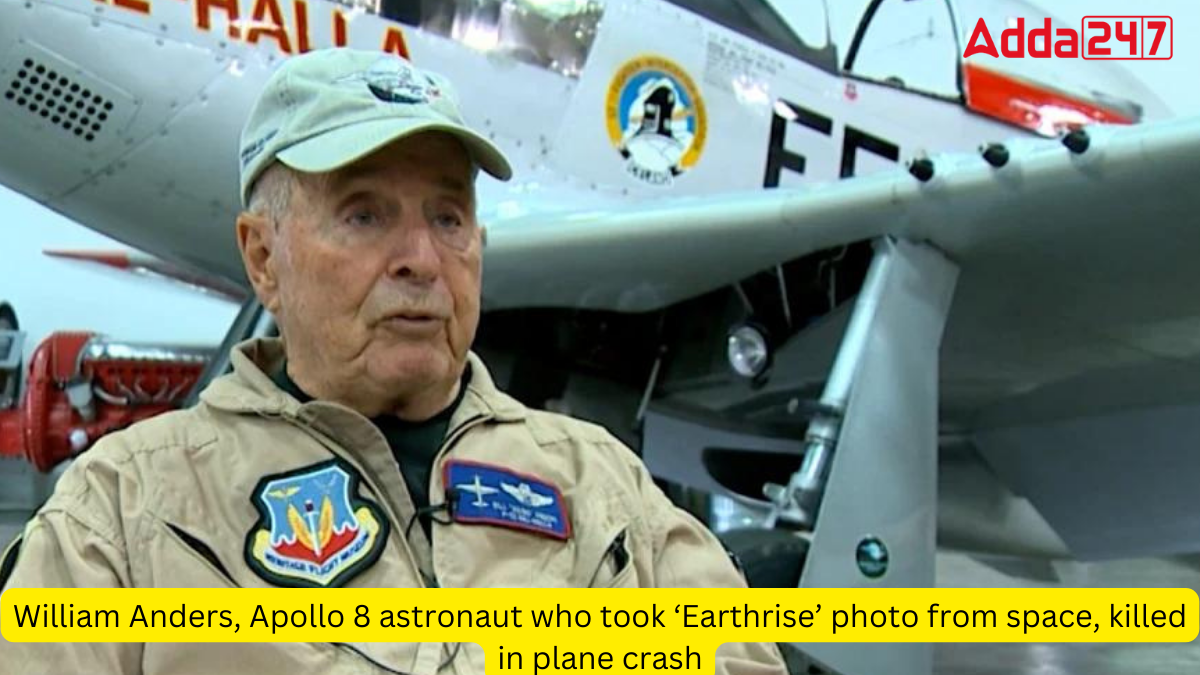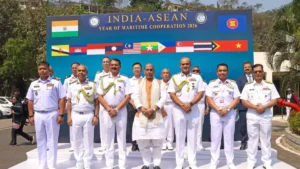Retired astronaut William Anders, one of the first three humans to orbit the moon, who captured the “Earthrise” photo during NASA’s Apollo 8 mission, died on June 7 when the small plane, he was piloting, crashed in Washington state.
About William Anders
Anders was born in Hong Kong on Oct. 17, 1933. He had four sons and two daughters. He was also the backup pilot for the Gemini XI mission and Apollo 11 mission in which the first humans actually landed on the moon on July 20, 1969.
Achievement of William Anders:
A U.S. Naval Academy graduate and Air Force pilot, Anders joined NASA in 1963 as a member of the third group of astronauts. He did not go into space until Dec. 21, 1968, when Apollo 8 lifted off on the first crewed mission to leave Earth orbit and travel 240,000 miles (386,000 km) to the moon. Anders was the “rookie” on the crew, alongside Frank Borman, the mission commander, and James Lovell, who had flown with Borman on Gemini 7 in 1965 and later commanded the ill-fated Apollo 13. Apollo 8, originally scheduled for 1969, was pushed forward because of concerns the Russians were accelerating their own plans for a trip around the moon by the end of 1968. That gave the crew only several months to train for the historic but highly risky mission. During the flight, Anders captured what became one of history’s most iconic photographs, an image of Earth rising over the lunar horizon. He also played a key role in another indelible episode from that Christmas Eve mission – leading off as the crew read from the Book of Genesis while Apollo 8 transmitted images of the lunar surface to Earth.
About Apollo 8 mission
The Apollo 8 mission was launched 55 years ago on Dec. 21, 1968, to circle the moon and return to Earth in preparation for the Apollo 11 lunar landing the following year.
- Anders was lunar module pilot on the Apollo 8 mission. Also on the mission were Frank Borman, who was the commander, and James Lovell Jr. The mission proved the command and service module.
- Anders took the famous “Earthrise” photo that showed our world with the lunar horizon in the foreground.
About Apollo 11 mission
The three astronauts were greeted as national heroes when they splashed down three days later in the Pacific Ocean and were feted as Time magazine’s “Men of the Year.”
- Their mission paved the way to the first moon landing by Apollo 11 seven months later, assuring U.S. victory in the Cold War “space race” with the Soviets. But it was also hailed for lifting national spirits at the end of one of America’s most traumatic years, in which Americans were shaken by the war in Vietnam, and riots and assassinations at home.




 Defense Minister Rajnath Singh Inaugurat...
Defense Minister Rajnath Singh Inaugurat...
 MILAN Village Opens in Visakhapatnam For...
MILAN Village Opens in Visakhapatnam For...
 Rajnath Singh Unveils Missile Integratio...
Rajnath Singh Unveils Missile Integratio...








